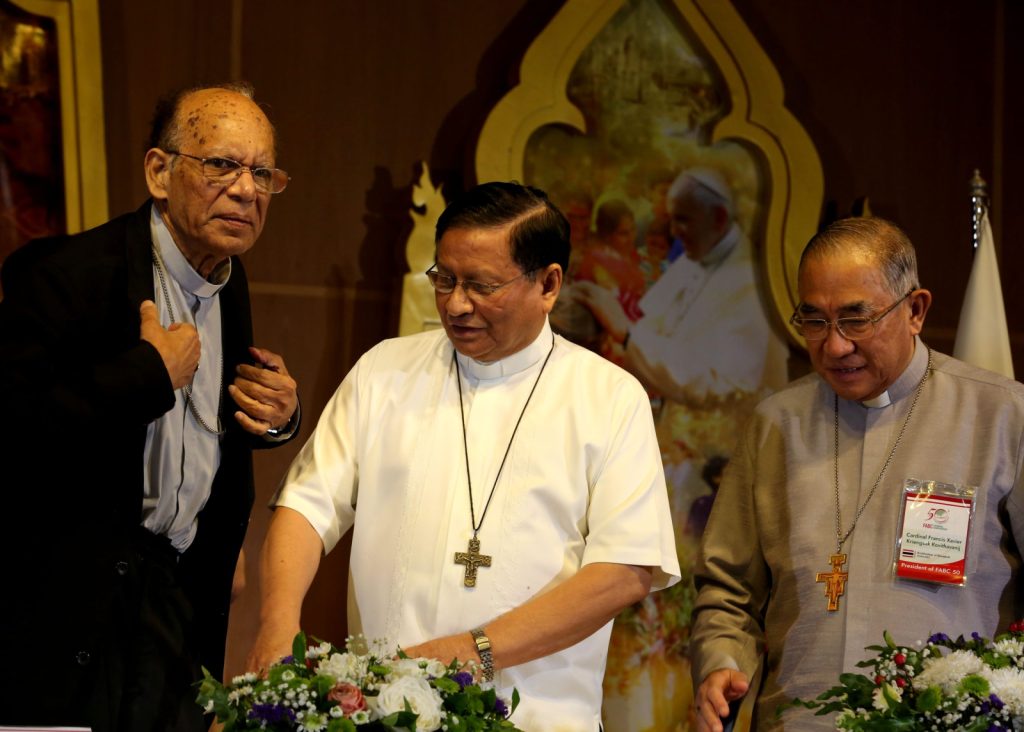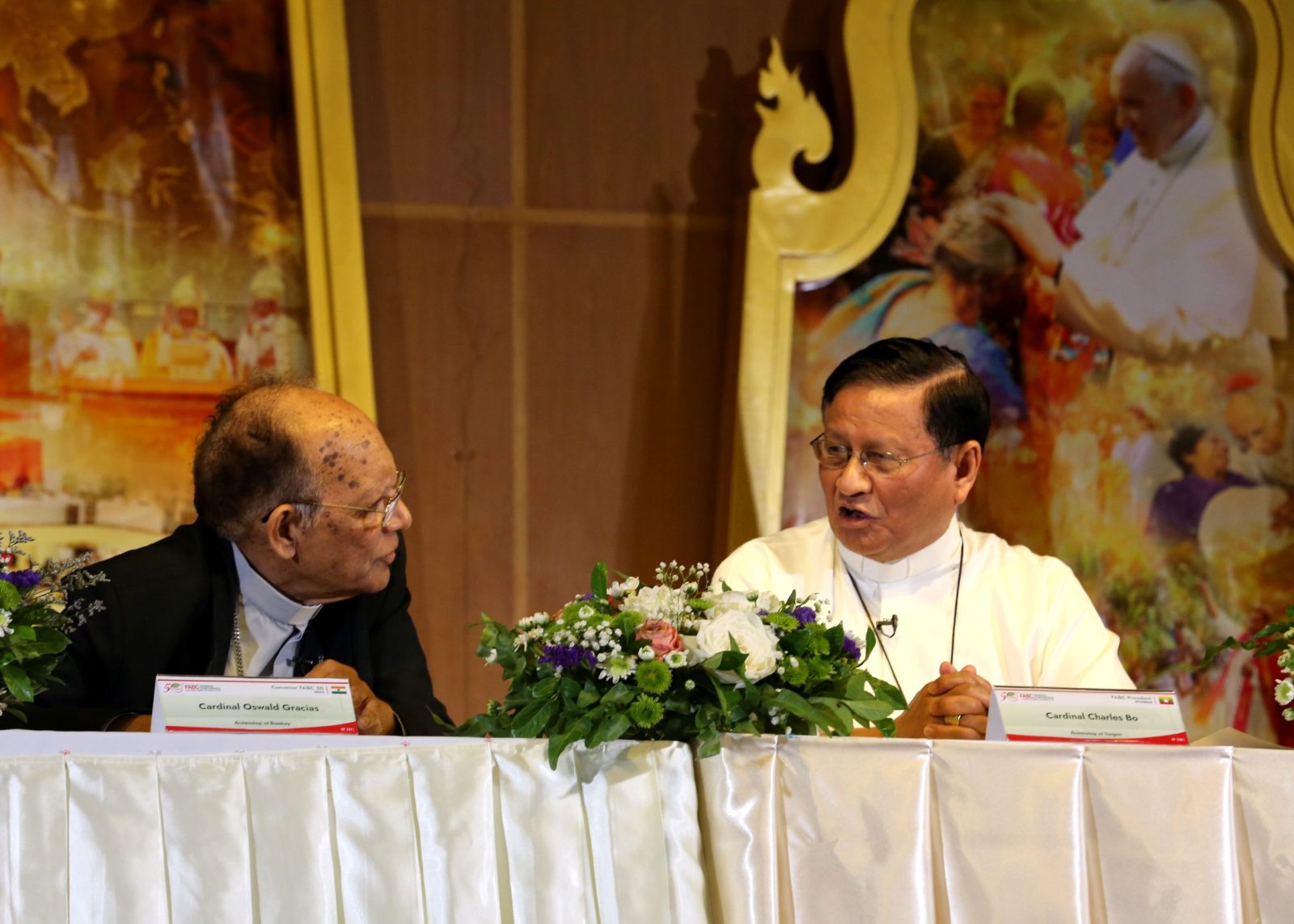It is time for the Catholic Church in Asia “to make a contribution to the wider Church,” said a leading prelate from the region at the general conference of Asia’s cardinals and bishops this week.
“I think the time has come,” said Cardinal Oswald Gracias of Bombay, convenor of this year’s general conference of the Federation of Asian Bishops’ Conferences (FABC) in Thailand.
The prelate said the Church in Asia is “young” and “growing,” but “the time has come for the Church in Asia to make contributions also to the universal Church.”
Cardinal Gracias revealed that in the ongoing meeting of the region’s Church leaders papers on “new theology … new insight to theology” have been presented.
He said that among the lessons the rest of the world can learn from Asia is about inter-religious dialogue.
“I think that many countries, especially in Europe, are struggling on how to have, how to deal with other religions,” said the Indian cardinal.
“I think we’ve got the experience because for us it is not an option, it is a necessity,” he said, adding that the Church in Asia has “successfully helped each other, other religions and … harmoniously help each other.”
Cardinal Gracias also said that in some countries in Asia, “peace and reconciliation committees” are being organized.
“I’m thinking of South Korea and Japan. I myself also attended meetings in South Korea. We’re planning for the future unification of the two, for peace, and reconciliation,” he said.
“Certainly, these are contributions we can make from our experience, our reflection, successes and failures to the universal Church,” said Cardinal Gracias.
Responding to a question raised during a media briefing on October 12 about the recent appointments of several bishops to the Roman curia, the cardinal said the Holy Father might be sending a message that the Church is not “Eurocentric.”
“It’s an indication of Asia taking its rightful place in the Church,” he said. Besides, “the pope likes Asia,” added the cardinal.


Cardinal Charles Maung Bo of Yangon, FABC president, said Pope Francis is “very keen and (is) really giving attention and love for those people who are in the periphery, those people who are the poorest.”
“So Asia is most of the time … somewhat forgotten by the world, so he is trying to pick up from all those corners so that it could become universal,” he said, referring to the appointment of cardinals from Asian in the past months.
“He has been picking up those cardinals from the poorest of the people, and … his focus and attention is to give to the poor and the marginalized,” said Cardinal Bo.
As to what Asia can contribute to the universal Church, Cardinal Bo enumerated the “Asian values” of “family, spirituality, respect for elders and parents, peace and meditation, and sacredness.”
He said the vast majority of people in Asia “have some connection with a religious tradition.”
Pope Francis in August this year created 21 new cardinals including six from Asia— India, Singapore, East Timor, South Korea, and Mongolia.
With the six new cardinals from Asia, the region’s number of cardinal electors who will choose the next pope rose to 21— five are from India, two from the Philippines, and one each from Myanmar, Pakistan, Bangladesh, Thailand, Japan, Laos, Sri Lanka, Iraq, Indonesia, Mongolia, Singapore, and East Timor.
The continent now has the second highest number of cardinal electors to choose the next pope, after Europe.
To date, 82 of the 132 cardinals eligible to participate in the conclave were appointed by the 85-year-old Argentinian pontiff.



